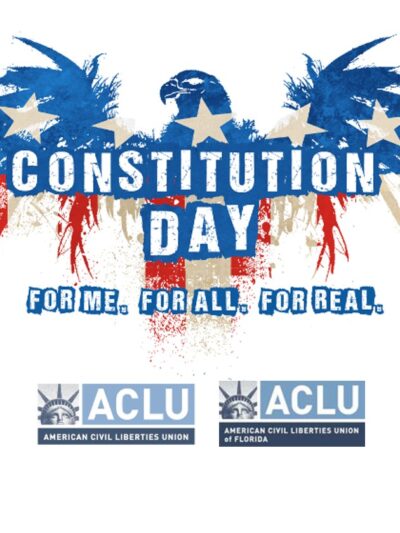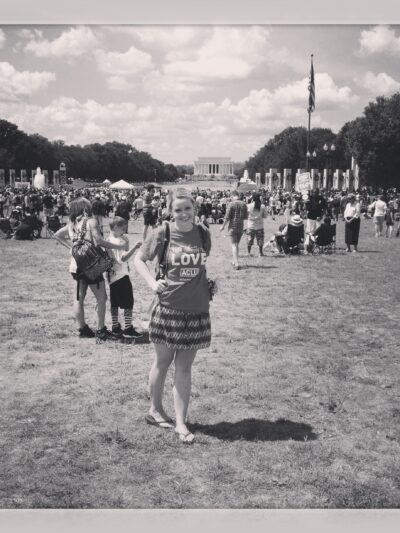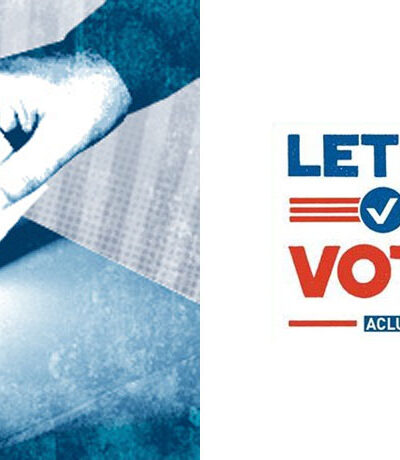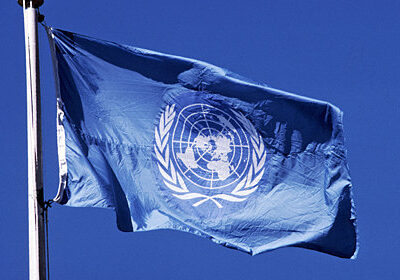News & Commentary
"Integrity" and the Voter Purge: Too Many Unanswered Questions
The 2012 voter purge was like a bad joke – using unreliable government databases, the state of Florida tried to remove people from the voter rolls in the name of fighting voter fraud, but with no actually evidence of voter fraud to be found. The result was a disaster, with elections supervisors describing it as “embarrassing,” “sloppy,” and “disgusting.” Now, to add insult to injury, the state is planning to use the same erroneous databases from last year to make Florida elections the laughing stock of the country again. We don’t trust it, and neither should you: if you or someone you know wrongfully receives notice that you are being removed from the voter rolls, contact the ACLU of Florida for help.

Release the Vote: Felon Disenfranchisement in Florida
In 2011, we saw a triple play of voter suppression with redistricting, HB 1355 (dubbed the Voter Suppression Act), and regressive changes to Florida’s Clemency Rules. The Florida legislature is accountable for the first two and to their credit, they did try to fix some of the mess that they created. But, Florida is not off the hook yet with disenfranchisement.
It saddens me to say that Florida ranks high on the list of states that disenfranchise individuals indefinitely after they have returned to the community. And as a result, our state’s denial of voting rights for people with past felony convictions is about to go under the international human rights microscope.
By Joyce Hamilton Henry

Why Have 1.5 Million Floridians Been Banned from Voting?
Joyce Hamilton Henry also contributed to this blog.
The struggle to protect the fundamental right to vote for people with a felony conviction is nothing new in this country, but has now reached a crisis level. Almost six million people are denied the right to vote because of felon disfranchisement laws that perpetuate racial and economic disparities by excluding citizens from the democratic process even after they have paid their debt to society. Last week none other than Sen. Rand Paul (R-KY) came out in favor of restoring the right to vote for the formerly incarcerated.
The result is of the injustice of felony disenfranchisement is that people, especially people of color, are legally barred from participating in our system of government, and denied a say in the issues that impact their communities. Factors that contribute to so many people's involvement in the criminal justice system in the first place are then rarely addressed.

Constitution Day: What Precisely Are We Celebrating?
On Tuesday, September 17th, we celebrate the 226th birthday of our Constitution. But what precisely should we celebrate?
The founders of this country created a remarkable document. It is the legal and political framework for our democracy. But it was a deeply flawed document.
Because strict legal limits on the power of government are needed in a majoritarian democracy, principles protecting individual liberty were codified in a Bill of Rights, which was not part of the Constitution as it was drafted on September 17, 1787, nor was it part of the Constitution submitted to the 13 states for ratification.
So when we celebrate the Constitution, we celebrate not only those who created the Constitution during the summer of 1787, but also those who had a broader vision of liberty and fought to improve it.

The March on Washington: Dream of a Better America
ACLU of Florida’s Field Coordinator Nikki Fisher is attending the 50th Anniversary March on Washington. She will be blogging her experiences for ACLUFL.org
This past weekend, I traveled to Washington DC to commemorate the 50th Anniversary on the March on Washington. Friends and colleagues have been asking me how I would describe the trip. The best explanation: I have been on cloud nine since Saturday. The energy, inspiration, and enthusiasm of the crowd were indescribable. The diversity of messages, of people, of generations, and sex, race, religion and everything else all involved in thefight for justice in the United States was inspiring. Seeing the continued struggle of all Americans coming together on Washington is something I will never forget.
By Nikki Fisher

Gay rights coalition: Now is not the right time to put same-sex marriage on Florida ballot
“I
By admin

Let People Vote: A Postcard from Florida
The following is adapted from the remarks by ACLU of Florida Executive Director Howard Simon to the Presidential Commission on Election Administration, which held its second hearing on June 28, 2013 in Miami.
The President’s charge to the Commission on Election Administration is an opportunity for a non-partisan conversation about how to promote the efficient administration of elections, provide better access to the polls for all voters, and shorten the lines at polling places. This Commission can provide “best practices” on these matters to state lawmakers and those charged with the administration of elections. Too often the rights of voters are lost in a tug of war between the major political parties jousting for perceived partisan advantage by manipulating election laws.

Seeking Justice through the U.N. Human Rights Committee
When the U.N. Human Rights Committee reviews U.S. compliance with the International Covenant on Civil and Political Rights (ICCPR) this October, the review will tackle many of the human rights violations plaguing Florida. Last week the committee released its list of issues, which will form the basis for the U.S. review, and demanded answers to questions regarding U.S. laws and policies in areas such as juvenile solitary confinement, felon disfranchisement, and discriminatory enforcement of criminal law.

Stay Informed
Sign up to be the first to hear about how to take action.
By completing this form, I agree to receive occasional emails per the terms of the ACLU’s privacy statement.
By completing this form, I agree to receive occasional emails per the terms of the ACLU’s privacy statement.
